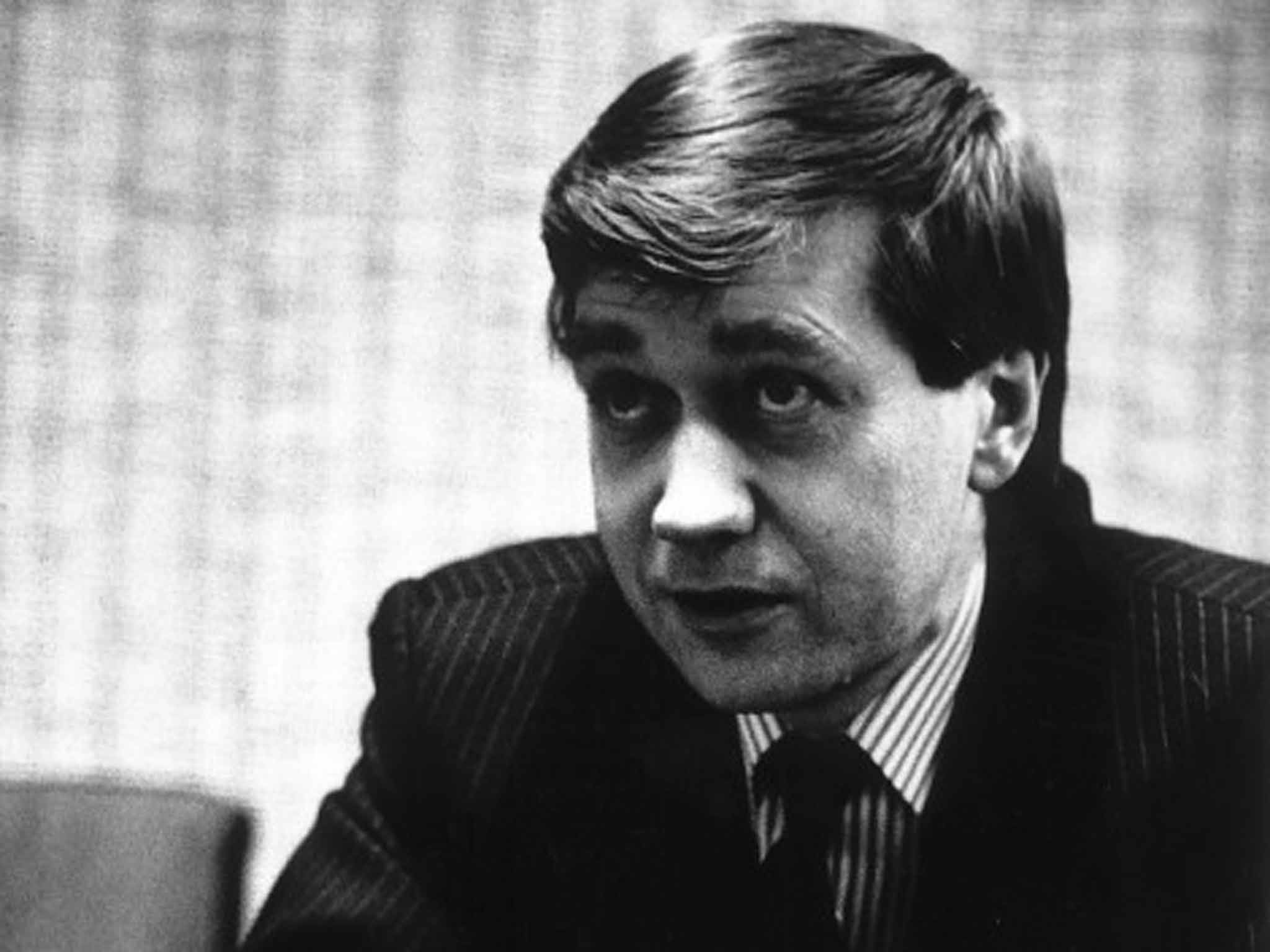Roger Poole: Trade union official whose impeccable public persona helped ambulance workers defeat the Tory government
Runner-up to the Today programme's Man of the Year, he was known for his skills in negotiating and communicating

Roger Poole, who has died of cancer, became a hero of the trade union movement in 1989 when he led the ambulance workers in a dispute which gained the support and sympathy of public and press and was one of the few successful strikes during the Margaret Thatcher era.
Young, dynamic, smartly dressed – he brought a new suit for the dispute – and with a soft Bristolian burr and a new haircut, Poole became the public face of the health unions, in stark contrast to the look of past union leaders, scoring points against the rather tired-looking, sometimes seemingly confused Health Secretary of the time, Kenneth Clarke. In victory he spoke of the settlement as "driving a coach and horses" through Government pay policy, and became runner-up to the Today programme's Man of the Year.
Poole was born in Bristol, his father a decorator and trade unionist. He showed an early inclination to taking on the authorities at his rugby union-playing school, Ashton Gate, successfully demanding that a football pitch be installed. Leaving at 15 without qualifications, he eventually secured a job at a local laboratory then worked as a motor mechanic and as a security officer. In 1970 Poole and his new wife Berenice spent their honeymoon, along with friends, armed with a CBI grant to promote British goods, driving a double-decker bus across the US, down into South America – where it sank in a Peruvian river.
He returned to become an official of the National Union of Public Employees, the union responsible for organising the lower-paid, usually manual workers in the NHS and in local government. His understanding of the problems workers faced, along with a natural ability to argue succinctly on their behalf, led to his becoming assistant general secretary. The union played a militant role during the winter of discontent and was one of those blamed for the anti-union feeling that led to the Tory landslide of 1979, enabling Thatcher to put into action most of her plans aimed at breaking the power of the unions.
But Poole, with a more conciliatory approach, took on board lessons learned from unsuccessful disputes when he became spokesman and chief negotiator for the group of five unions that combined to take industrial action in 1989 on behalf of the ambulance staff, who wanted a £20-a-week pay increase and a formula linking pay to inflation. "The public face of unions is the big set-piece confrontation," he observed, "and the unions put this across badly. Scargill and Thatcher were opposite sides of the same coin. I don't think you can operate like that."
The dispute started as an overtime ban then escalated to lock-outs, occupations and arrangements for emergency cover; the Government responded by bringing in "Green Goddess" army ambulances. But whereas in the past the public might not have shown much support, this time it was different: the unions worked closely together as the government and health service employers began to differ on how they should approach the dispute.
Ken Clarke was wrong-footed by Poole, who impressed the public as moderate, confident, bright and committed. He helped swing public support behind the strikers, getting the better of Clarke time and again in broadcasts and at the negotiating table. Over 4m people sign a petition calling upon the Government to pay give the ambulance staff what they wanted. Misjudging the growing support for the workers, Clarke made the mistake of going on holiday, leaving Poole to wonder aloud why he should he waste time by going to the arbitration service, Acas, to talk to the monkeys when the organ grinder was in France.
The dispute lasted nearly six months and ended with a settlement that gave ambulance staff a pay rise of 16.9 per cent and also led to a new understanding and recognition of what ambulance staff work entailed, laying down the foundations for the transformation of ambulance workers into even more highly skilled paramedics.
Poole stayed with Nupe, and in 1993 helped to negotiate the merger with Nalgo, which represented local-authority white-collar staff, and the other health union, Cohse. He became an Assistant General Secretary of the resulting union, Unison. "His negotiating and communicating skills helped countless thousands in the NHS and in public services," said Rodney Bickerstaffe, General Secretary of Nupe and later of Unison. "He believed in conciliation."
Poole continued to work hard for those he felt needed most protection, work he described as being "the private face of trade unionism". In 1996 he warned employers that they were now responsible for the mental as well as physical health of their employees following a court case which saw a large award to an employee who had suffered from several breakdowns while working in local government.
In November 2005, Poole, newly retired, was appointed to the Northern Ireland Parades Commission, becoming its chairman, a position he held until 2009. During that time he did much to initiate rapprochement among local groups. Peter Hain, the Northern Ireland Secretary who appointed him, said: "No one lost dignity and principles. Roger persuaded people to find solutions, sometimes without them realising that they had done so."
His work as a conciliator continued with his involvement in the reorganisation of working practices at the Royal Mail. He also adjudicated Remploys' closure of factories employing the disabled, and was a visiting lecturer at Warwick University.
Roger Poole, trade unionist and conciliator: born Bristol 11 July 1946; married 1970 Berenice Peglar (one daughter, one son); died Droitwich 3 July 2015.
Subscribe to Independent Premium to bookmark this article
Want to bookmark your favourite articles and stories to read or reference later? Start your Independent Premium subscription today.

Join our commenting forum
Join thought-provoking conversations, follow other Independent readers and see their replies